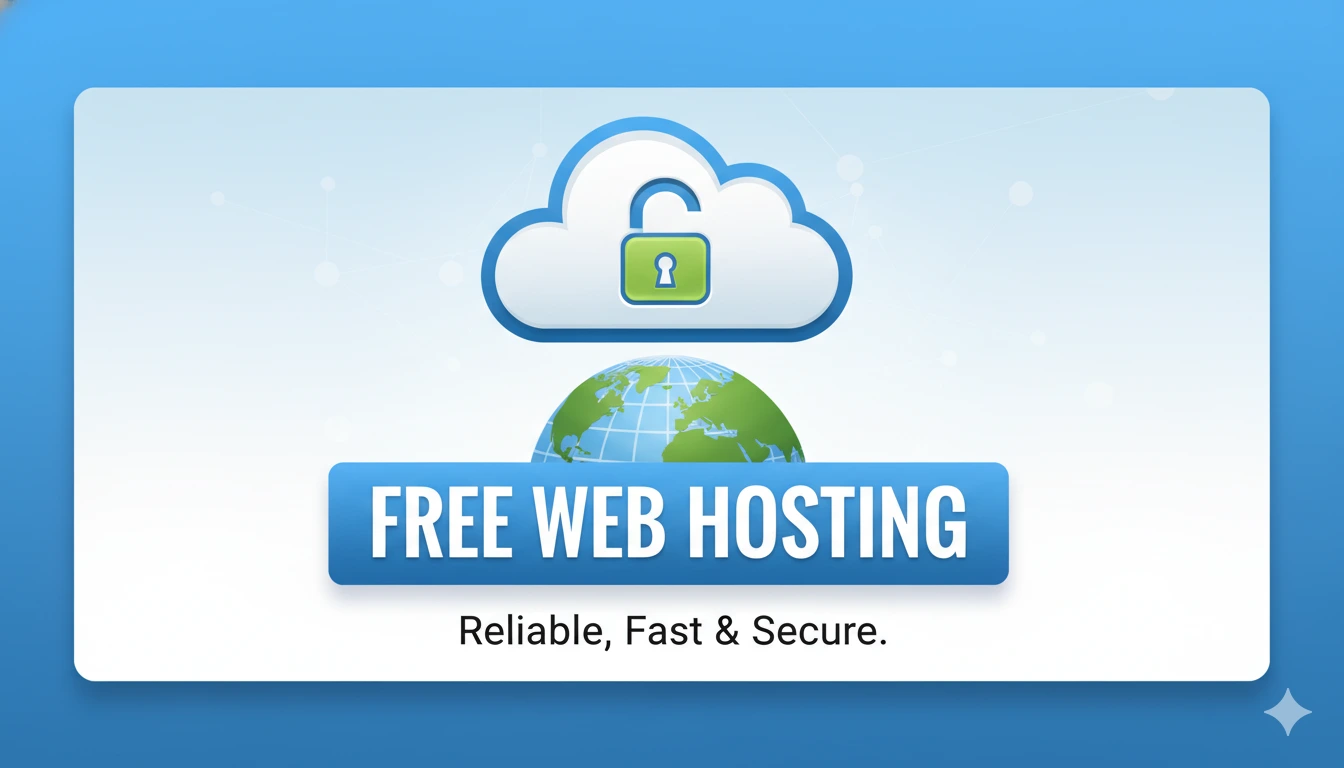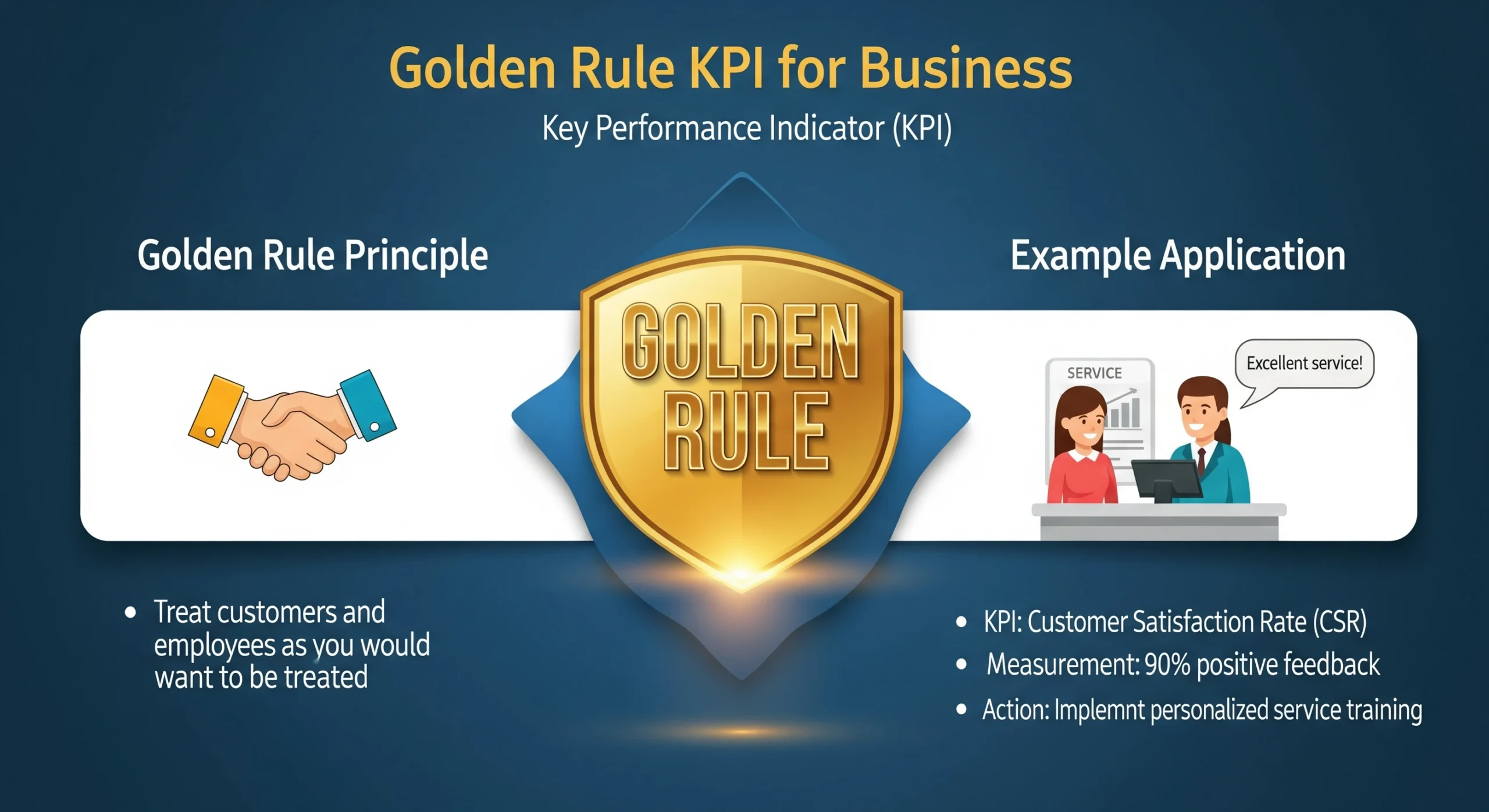Yes, Lifetime free web hosting services is Possible, Which allow individuals and small businesses to host websites without recurring costs, though they often come with specific limitations and trade-offs.
Free Web Hosting Services
If you’re starting a personal blog, portfolio, or small project and want to keep costs low, free web hosting can be an excellent way to begin. However, it’s important to understand the trade-offs before you dive in. In this guide, we’ll cover everything from performance insights to practical use cases, giving you a well-rounded perspective supported by the latest industry data.

Below, you’ll find a detailed overview of the top 10 lifetime free web hosting providers for 2025, along with an objective breakdown of their key advantages and limitations.
Why Consider Lifetime Free Web Hosting ?
Free web hosting empowers creators by removing entry costs, making web access more inclusive. In 2025, over 40% of new sites launch on free platforms, especially for students and solopreneurs. While ideal for small projects, limits on storage, bandwidth, and support mean scalability often requires upgrading to paid plans.
Top 10 Lifetime Free Web Hosting Services
Drawing on hands-on evaluations from TechRadar, Forbes Advisor, and WPBeginner, here are the top lifetime free web hosting providers. Each offers a genuinely perpetual free plan suited for beginners or static sites. These picks stand out for reliability, strong user reviews (4+ stars on Trustpilot), and uptime exceeding 99%.
1. InfinityFree Free Hosting
InfinityFree remains a top choice in 2025, hosting over 500,000 websites with a truly free, no-ads model. Powered by iFastNet—a trusted hosting provider—it delivers strong stability and transparent usage policies without selling user data.
Key Features:
- Unlimited bandwidth and disk space (fair usage applies)
- Free SSL certificate for HTTPS security
- Support for PHP 8+, MySQL databases, and one-click WordPress installs
- Softaculous app installer with 400+ scripts
- Free subdomain or custom domain support
- cPanel-like VistaPanel interface with FTP access
Pros:
- Ad-Free Experience: No forced banners, keeping your site clean and professional
- Generous Resources: Ideal for testing environments or multiple small projects
- High Uptime: 99.9% reliability with CDN integration for faster global loading
- Beginner-Friendly: Softaculous installer and intuitive control panel simplify setup
Cons:
- No Email Hosting: Requires third-party options like Zoho Mail
- Limited Support: Forum-based help only; no live chat or ticketing
- Resource Limits: Heavy CPU use or high traffic may trigger throttling or suspension
- Manual Backups: No automatic daily snapshots
Verdict: InfinityFree is best suited for hobbyists, students, or developers prototyping apps. Independent tests (e.g., ZDNET) show load times under 2 seconds—impressive for a completely free host.
2. AwardSpace Free Hosting
AwardSpace has been a reliable free hosting provider for over two decades, serving more than a million users. Its “lifetime free” plan stands out for being ad-free and transparent—ideal for personal blogs, portfolios, or small landing pages.
Key Features:
- 1GB SSD storage and 5GB monthly bandwidth
- Free subdomain (e.g., yoursite.awardspace.net) or custom domain support
- PHP and MySQL compatibility with one-click CMS installation (WordPress, Joomla, etc.)
- Free SSL certificate and one email account
- Built-in website builder and 99.9% uptime guarantee
Pros:
- Ad-Free Hosting: Clean, professional presentation without forced branding
- Beginner-Friendly: Simple, intuitive control panel and one-click installs
- Includes Email: A rare bonus for free tiers
- Responsive Support: Ticket-based help with 24–48 hour replies
- Reliable Uptime: Consistent 99.9% performance with SSD speed
Cons:
- Limited Resources: 1GB storage and 5GB traffic unsuitable for media-heavy or high-traffic sites
- Basic Control Panel: Functional but lacks cPanel’s advanced tools
- E-Commerce Restrictions: Shopping carts require upgrading to paid plans
Verdict: AwardSpace is a dependable choice for simple, ad-free websites. It’s praised by Forbes Advisor (4.5/5) for usability and remains a solid option for beginners who value clean branding and reliability over heavy resource capacity.
3. FreeHosting.com Free Web Hosting
FreeHosting.com is a long-standing free web host offering generous resources and domain flexibility. Its “lifetime” hosting remains active as long as your domain does, making it a practical option for students, non-profits, or content-heavy personal projects.
Key Features:
- 10GB storage and up to 250GB monthly bandwidth (unmetered under fair use)
- Free subdomain or custom domain support
- PHP 7+ and MySQL database compatibility
- FTP access and web-based file manager
- Basic SSL for site security
- No forced ads
Pros:
- Ample Resources: 10GB storage easily supports media-rich or multi-page sites
- Unmetered Bandwidth: Handles moderate traffic spikes smoothly
- Custom Domain Support: Offers a professional, branded web presence
- Ad-Free Experience: Keeps sites clean and distraction-free
- Simple Setup: Browser-based management tools streamline configuration
Cons:
- Limited Support: Email-only assistance, often slow (up to 72 hours)
- No Email Hosting: Requires separate paid service for mail accounts
- Outdated Interface: No drag-and-drop builder; manual setup required
- Single Database: One MySQL instance restricts complex web applications
- Performance Variability: Shared servers may slow during peak hours
Verdict: FreeHosting.com delivers one of the most generous free hosting packages available, ideal for static or educational sites. While it lacks modern builders and robust support, its large storage, ad-free environment, and domain flexibility make it a solid long-term option for budget-conscious users.
4. 000WebHost Free Hosting
000WebHost, owned by Hostinger, is one of the most recognized free hosting platforms for beginners, students, and small projects. It provides a “lifetime free” tier ideal for learning or testing, built on Hostinger’s LiteSpeed servers for faster performance.
Key Features:
- 300MB storage and 3GB monthly bandwidth
- Free subdomain (no forced ads) and SSL certificate
- WordPress auto-installer and drag-and-drop site builder
- PHP and MySQL support
- Daily backups and malware protection
- Simple, beginner-friendly control panel
Pros:
- Fast Performance: LiteSpeed servers enable sub-1-second load times (WebsitePlanet tests)
- Ad-Free Experience: No forced ads on your site, maintaining a clean look
- Easy to Use: Intuitive dashboard with tutorials and integrated website builder
- Seamless Upgrades: Effortless migration to Hostinger’s paid plans
- Basic Security: Includes SSL, malware scans, and DDoS protection
Cons:
- Very Limited Resources: 300MB storage and 3GB bandwidth restrict scalability
- No Email Hosting: Custom domain emails require external services
- Community-Only Support: No live chat or ticket-based assistance
- Dashboard Ads: While sites remain ad-free, the control panel displays promotions
- Occasional Downtime: Reported reliability issues under heavy usage
Verdict: 000WebHost is best for beginners who want to experiment with WordPress or build lightweight personal sites. Its ease of use, clean interface, and Hostinger-backed speed make it an appealing entry-level choice, though limited storage and support may require upgrading as your site grows.
5. GoogieHost Free Hosting
GoogieHost offers a lifetime-free hosting plan that’s ad-supported but feature-rich, making it a popular entry point for beginners and small projects. Built on NVMe SSD infrastructure, it delivers faster performance than most free competitors and includes upgrade paths to one-time “lifetime” paid plans.
Key Features:
- 1GB NVMe SSD storage with unmetered bandwidth (fair usage applies)
- Free subdomain or lifetime domain on paid upgrade
- PHP 8+, MySQL, and WordPress support
- Free SSL certificate and email forwarding
- Community-driven tutorials and support forums
Pros:
- Fast Performance: NVMe SSD drives deliver up to 30% faster speeds than HDD-based hosts (TechRadar)
- Generous Bandwidth: Unmetered usage suits moderate, steady traffic
- Free SSL & WordPress Support: Secure and flexible for various site types
- Affiliate Perks: Users can unlock premium features through referrals
- Active Community: Tutorials and discussion forums aid self-guided troubleshooting
Cons:
- Ad Presence: Dashboard and occasional on-site banners can be intrusive
- Reliability Concerns: Reports of brief downtime during heavy traffic
- Aggressive Upselling: Frequent upgrade prompts in the dashboard
- Limited Email Functionality: Only supports forwarding, not full inbox hosting
Verdict: GoogieHost is a solid option for users seeking free hosting with speed and flexibility. Despite its ad-supported model and limited email options, its NVMe performance and community support make it a strong choice for small personal or educational websites.
6. ByetHost Free Hosting
ByetHost, powered by iFastNet, is one of the oldest and most trusted free hosting providers. Launched in 2003, it offers lifetime free, ad-free hosting backed by reliable infrastructure and modern SSD technology. Ideal for beginners, students, and small projects, it hosts over a million active sites worldwide.
Key Features:
- 5GB NVMe SSD storage and unlimited bandwidth (fair use)
- Up to 5 free subdomains or connect your own domain
- PHP 8.3, unlimited MySQL databases, and phpMyAdmin access
- VistaPanel control panel with file manager and cron jobs
- Softaculous one-click installer (400+ apps including WordPress)
- Free SSL certificate, email accounts, and FTP access
- 99.9% uptime and global server network
Pros:
- Completely Free & Ad-Free: No hidden fees or site ads
- Fast & Reliable: NVMe SSD and iFastNet infrastructure ensure strong performance
- Developer-Friendly: PHP, MySQL, and FTP access for real app testing
- Easy to Use: Simple setup and beginner-friendly control panel
- Upgradeable: Smooth transition to paid hosting without data loss
Cons:
- Resource Limits: CPU throttling during high traffic or plugin-heavy use
- Outdated Interface: VistaPanel feels old-fashioned and slow at times
- Limited Support: Ticket-based help only; responses can take days
- Manual Setup: SSL renewals and backups must be done manually
Best For: Beginners, students, and hobbyists creating personal blogs, portfolios, or test projects—not suited for high-traffic or e-commerce sites.
7. GitHub Pages Free Hosting
GitHub Pages is a free hosting service from GitHub (owned by Microsoft) that lets you publish static websites directly from your code repositories. Launched in 2008, it’s perfect for developers, students, and creators who want to share projects, portfolios, or documentation without server management or extra costs.
Key Features:
- Free static hosting for HTML, CSS, JS, and Markdown files
- Custom domains with free HTTPS (Let’s Encrypt)
- 1GB storage and soft 100GB/month bandwidth limit
- Git-based version control for easy updates and collaboration
- Integration with GitHub Actions for automated builds and deployment
- Global CDN (via Fastly) for fast performance
- Jekyll and other static site generator support
- Simple setup—live site in minutes from your repo
Pros:
- Completely Free: No ads, hosting fees, or bandwidth charges under fair use
- Developer-Friendly: Git-based workflow enables quick updates and version control
- High Performance: Azure CDN ensures sub-1-second load times worldwide
- Secure and Reliable: Automatic SSL and 99.99% uptime
- Collaborative: Ideal for open-source teams or documentation sites
Cons:
- Static Only: No backend languages like PHP or databases
- Limited Resources: 1GB repo limit; large builds can take time
- Requires Git Knowledge: Beginners may find setup technical
- Not for E-Commerce: No support for dynamic features or transactions
Best For: Personal portfolios, documentation, and small static projects.
8 WordPress.com Free Hosting
The free plan gives you a hosted WordPress site on a subdomain (e.g., yoursite.wordpress.com). You can publish unlimited posts and pages using a simple drag-and-drop builder. Automattic’s global data centers ensure strong performance and 99.99% uptime. The plan includes Jetpack-powered security and backups, making it one of the most beginner-friendly ways to get online.
However, storage is limited to 1GB, and you’ll see WordPress ads on your site. To remove ads or use custom domains, you’ll need a paid plan.
Key Features
- 1GB Storage with unlimited posts and pages
- Free WordPress.com subdomain (custom domains require upgrade)
- Hundreds of free themes and a simple site editor
- Automatic updates, backups, and security via Jetpack
- SSL encryption and built-in spam/malware protection
- Global CDN for fast page loads worldwide
- Basic SEO tools and 7-day traffic stats
- Contact forms, donations, and basic payments (10% fee applies)
- Email/ticket support with 24–48 hour response times
Pros
- 100% free with no expiry or hidden fees
- Very easy setup—live site in minutes
- Secure, fast, and automatically maintained
- Unlimited content creation
- Great for beginners and non-technical users
Cons
- Only 1GB of storage
- No plugins or custom code access
- Shows WordPress ads
- Can’t use your own domain on the free plan
- Limited customization and analytics
Best For: Beginners, personal blogs, portfolios, and simple informational sites.
If you want full control, monetization options, or plugin access, upgrading to a paid WordPress.com plan or using WordPress.org hosting is recommended. For everyone else, the free plan is a solid, lifetime-free way to get started online.
9. Wix Free Web Hosting
Wix is a cloud-based website builder that combines design, hosting, and apps into one easy platform—no coding needed. It takes care of all technical aspects like security, updates, and uptime through its own infrastructure (powered by AWS). The free plan is lifetime-free, letting you create a website on a Wix subdomain (e.g., yoursite.wixsite.com), supported by Wix ads.
Paid plans (from $16/month) unlock custom domains, e-commerce, analytics, and extra features for businesses and professionals. In 2025, Wix continues to grow with new tools like Velo (for developers) and Ascend (for marketing and CRM). It offers 800+ templates, a fast global CDN, and 99.99% uptime—though sites can’t easily be exported to other platforms.
Key Features of Wix Free Plan
- Drag-and-Drop Builder: Create websites visually—add text, images, and videos easily. AI tools (ADI) can auto-generate a full layout.
- Templates: 800+ free, customizable designs across industries (blogs, stores, portfolios).
- Hosting & Performance: 500MB storage and 1GB monthly bandwidth on the free plan. Includes free SSL, CDN, and fast page loads.
- Apps & Integrations: 250+ apps in the Wix App Market (email tools, analytics, booking apps, etc.).
- SEO & Marketing: Built-in SEO settings, social media tools, and limited email marketing.
- Security: DDoS protection, backups (paid), and accessibility tools.
- Free Subdomain: Sites use yourname.wixsite.com/sitename format.
Pros of Wix
- Very Easy to Use: Drag-and-drop setup—no coding or tech skills required.
- Beautiful Templates: Professional, mobile-ready designs that look great instantly.
- All-in-One Platform: Hosting, domains, and apps in one place.
- Free Forever Plan: No time limits, ideal for beginners or small projects.
- Scalable: Paid upgrades handle larger sites and e-commerce.
- Reliable Support: 24/7 help and large community resources.
Cons of Wix
- Limited Free Resources: Only 500MB storage and 1GB bandwidth.
- Wix Ads: Displayed on free sites.
- No Custom Domains on Free Plan.
- Can’t Easily Switch Templates: Redesigning means starting over.
- Export Limits: Sites can’t be moved to another platform.
- Pricing Adds Up: Advanced tools and apps cost extra.
Best For: Beginners, small portfolios, personal blogs, and prototypes.
Wix’s free plan is great for testing ideas or learning web design. For professional use, a paid upgrade unlocks e-commerce, analytics, and full branding freedom.
10. Blogger Free Hosting
Blogger, owned by Google, is a free and fully hosted blogging platform made for quick and easy publishing. You can start a blog in minutes—just sign in with your Google account, choose a blogspot.com address (e.g., yourblog.blogspot.com), pick a theme, and begin posting. It includes hosting, storage, and design tools—all for free.
In 2025, Blogger connects smoothly with Google services like YouTube, Google Photos, and AdSense, making it easy to share and even monetize content. It offers 99.9% uptime through Google’s servers and allows up to 100 blogs per account. While it’s great for beginners, students, or hobby bloggers, professionals may find it limited for advanced design or SEO.
Key Features of Blogger (Free Plan)
- Free Hosting & Subdomain: Unlimited posts, photos, and videos on a blogspot.com address.
- Simple Editor: Easy-to-use post creator similar to Google Docs—includes spell check, scheduling, and formatting tools.
- Themes & Layouts: 20+ mobile-friendly templates with basic customization (drag-and-drop widgets).
- Google Integration: Works seamlessly with AdSense, Analytics, Gmail, YouTube, and Maps.
- Monetization: Built-in AdSense approval and support for affiliate links or donations.
- Security: Free SSL encryption and automatic protection from spam and malware.
- Mobile Access: Android and iOS apps for posting on the go.
Pros of Blogger
- 100% Free Forever: No hosting or upgrade costs—unlimited storage and bandwidth.
- Beginner-Friendly: Simple interface with no technical setup.
- Reliable Performance: 99.9% uptime with Google’s fast, secure infrastructure.
- Ad-Free by Default: No forced ads on your blog pages.
- Built-In Monetization: Easy AdSense setup for earning income.
Cons of Blogger
- Limited Design Options: Few modern templates and no external plugins.
- No Custom Domain (Free): Must use blogspot.com or pay extra for a domain.
- Basic SEO Tools: Lacks advanced settings for professional optimization.
- Hard to Scale: Not ideal for large sites or online stores.
- Minimal Support: Only community help—no live assistance.
Best For: Beginners, students, hobbyists, and writers who want a free, no-fuss way to publish online.
Blogger remains a reliable and simple starting point for blogging—perfect for learning and experimenting, though limited for long-term professional growth.





Leave a Reply